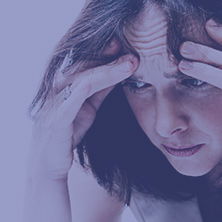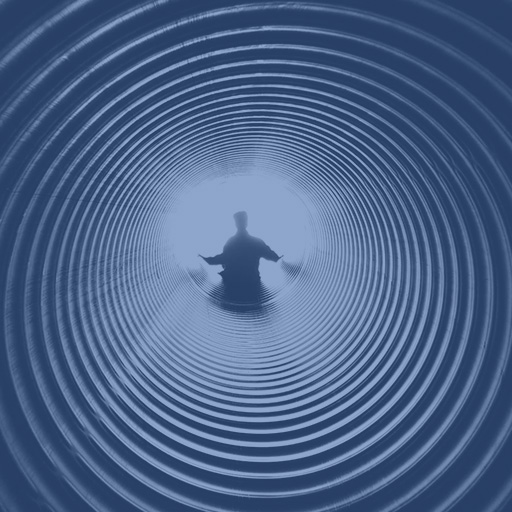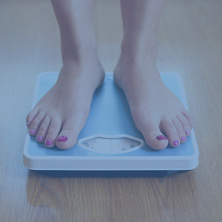
Want to try another test? Click on any test below

Depression

Anxiety

Adult ADHD

PTSD

Borderline Personality Disorder

Eating Disorder

Gambling Addiction
Taking a quiz online may be the first step to getting the help you need to live a fulfilling life with depressive symptoms, whether it is poor mood, lack of sleep, stress, or anxiety. Although not every day will be easy, once you can take inventory of what is going on with a quiz, and give yourself the space to heal and find support, there will likely be improvements. Again, the first step may be this online quiz.
Quizzes, although a great step to take, are not a replacement for a diagnosis from a medical professional. After taking this online quiz, it is important to discuss the tests and results with your doctor or therapist. The quiz will function like a inventory, looking for thoughts, actions, and emotions that align with the typical signs.
Some may ask what the difference between depression and sadness is and how to tell if you are experiencing a mental illness. The DSM V, the diagnostic manual for mental illnesses, requires a diagnosis to include 5 symptoms listed in the manual, and must include feelings of deep sadness, many professionals will use a quiz or scale, like the Hamilton Rating Scale to diagnose a client. Remember that this quiz is testing and taking inventory on your current symptoms and emotions, while most licensed professionals will be able to go past the efforts of this quiz. A counselor will delve into the emotions you have experienced in the weeks and months past, testing the extent of your potential diagnosis.
Symptoms will vary from person to person. Mental illnesses are personal, thus so are the treatments. If, after this quiz, you must get help from a therapist or counselor, you and your counselor will work together to discuss the symptoms, causes, and treatment for your results of the quiz.
Depression is a persistent mood disorder that affects the way we feel, think, and act; you may experience anxiety, stress, or saddening thoughts with depression. Depression is mainly characterized by profound sadness, lack of motivation, feelings of worthlessness, and loss of interest in pleasurable activities. These are the characteristics that this quiz is testing for. However, this quiz may not be all-encompassing, and other aspects of your life may be affecting your depression symptoms and mental health, that this quiz may not be testing for.
As you can probably imagine, depression disorders can impact our personal and professional life profoundly, leading to social isolation, relationship issues, and even medical complications, many people have trouble sleeping with depression. However, with the necessary information and treatment, people with depression can live productive healthy lifestyles with a diagnosis. There are many options for treatment, including therapy, medication, group therapy, and online therapy, each of these may help alleviate symptoms of depression.
Depression and anxiety have a lot in common, which is why it’s relatively easy – especially for laypeople – to confuse them. They are the two most common mental health or mood disorders that mental health professionals diagnose. Furthermore, depression and anxiety can co-occur, with overlapping symptoms that make it even more difficult for clinicians to separate them. People with anxiety and depression both may voice similar symptoms, like difficulty sleeping, poor mood, lack of energy, and anxious thoughts. However, this quiz tests for the differences in depression and anxiety.
While depression involves persistent sadness and the tendency to ruminate on past events and thoughts, anxiety generates restlessness and persistent worrying. But to understand why depression can have a devastating impact on our everyday life, we need to look at the signs and symptoms.
Depression symptoms can vary in intensity, change how you feel, dictate what you eat, what you do, or who you see, and may feel overwhelming. Whether it is the thoughts, mood, or feeling that makes you question whether or not you have depression, it is important that you take care of your mental health. What one person will feel may be different from another person's experience with depression. How to treat each of these symptoms may change from person to person as well. This quiz tests what you may be experiencing with depression, but other general symptoms can include:
Typically, symptoms must last at least two weeks for depression to be diagnosed, so take this into consideration throughout the depression quiz; then ask for an assessment from a mental health professional for further information and treatment, Furthermore, medical conditions such as vitamin deficiency can be mistaken for symptoms of depression so it is important to fully consider all possible causes as you take any depression quiz or inventory. Mental health can impact your energy levels, how tired you are, your stress, sleeping habits, mood, thoughts, and so much more. Keep reading to find out more about what treatment might be right for you.
If the results of this test seem like you may be experiencing depressive symptoms, know that you are not alone: Depression impacts 1 in 15 adults each year. And 1 in 6 people will experience depression at some time in their life. There is help out there for those with depression. Let the results of this quiz empower you to get help and improve your mental health, sleep, and mood.
If you or a loved one are experiencing suicidal thoughts, reach out for help immediately. The National Suicide Prevention Lifeline can be reached at 1-800-273-8255, and is available 24/7.
When it comes to treatment options for depression, mental health professionals often resort to medication and/or psychotherapy for depression. In fact, studies suggest that a mix of psychiatric interventions and therapy focused on depression, provides the best possible outcome. With the right treatment plan, anyone with depression or a mental health diagnosis can improve their mood, stress levels, sleeping, thoughts, and more. After this depression quiz, don't be afraid to reach out for the treatment and help you need for depression.
In essence, psychotherapy (or ‘talk’ therapy) helps you get to the bottom of the depression symptoms, understand how depression affects your life, and cultivate healthy habits that will keep your depression at bay.
In general, experts believe therapy is an excellent treatment option for mild forms of depression, and most professionals specialize in depression or have experience working with people who are experiencing depression. When it comes to severe clinical depression, healthcare professionals recommend a psychiatric consultation followed by antidepressant medication to tackle the depression. This balance of treatment medications and therapy can help with the pain of depression while understanding the thoughts and feelings.
Aside from individual therapy, patients with depression can benefit greatly from family and couples therapy. There's also group therapy for depression which brings together people who suffer from the same condition, creating a community that tests and provides mutual support for depression.
Since depression disorders are caused in part by chemical imbalances in the brain, the use of psychiatric treatments is sometimes the only way patients can get back on their feet, improve sleep, and decrease stress. Depression is treatable with the right care, and a therapist can support you to get the help you need and start feeling more like yourself and less like your depression symptoms.
What are the options for therapy? One valuable way to address symptoms of depression is online therapy or counseling. With therapy online, you can get treatment and improve your mental health or depression from the comfort of your home. On many online services you can receive therapy for depression, anxiety, bipolar disorder, and most mental health issues. This can be an empowering experience to cultivate a mindset of wellness, and not just focusing on what this quiz addresses: the symptoms of your depression. Are you wondering how to take the first steps? For more information on online counseling for how to address depression, check out BetterHelp on Instagram , Facebook , LinkedIn , Twitter , and YouTube.
Depression quiz results can provide helpful information on how to move forward.
There are many online resources and websites available to people dealing with mental health problems, including depression, anxiety, bipolar disorder, and other mood disorder diagnosis and symptoms. You are not alone. If you are in crisis involving symptoms of depression or other mental health problems or want to learn more about mental health, do not hesitate to call the hotlines below:
Don't be afraid to reach out for help for depression or other mental health concerns today, regardless of the results of this quiz.
Depression is a persistent mood disorder that affects the way we feel, think, and act; you may experience anxiety, stress, or saddening thoughts with depression. Depression is mainly characterized by profound sadness, lack of motivation, feelings of worthlessness, and loss of interest in pleasurable activities. These are the characteristics that this quiz is testing for. However, this quiz may not be all encompassing, and other aspects of your life may be affecting your depression symptoms and mental health, that this quiz may not be testing for.
As you can probably imagine, depression disorders can impact our personal and professional life profoundly, leading to social isolation, relationship issues, and even medical complications, many people have trouble sleeping with depression. However, with the necessary information and treatment, people with depression can live productive healthy lifestyles with a diagnosis. There are many options for treatment, including therapy, medication, group therapy, and online therapy, each of these may help alleviate symptoms of depression.
Depression and anxiety have a lot in common, which is why it’s relatively easy – especially for laypeople – to confuse them. They are the two most common mental health or mood disorders that mental health professionals diagnose. Furthermore, depression and anxiety can co-occur, with overlapping symptoms that make it even more difficult for clinicians to separate them. People with anxiety and depression both may voice similar symptoms, like difficulty sleeping, poor mood, lack of energy, and anxious thoughts. However, this quiz tests for the differences in depression and anxiety.
While depression involves persistent sadness and the tendency to ruminate on past events and thoughts, anxiety generates restlessness and persistent worrying.
But to understand why depression can have a devastating impact on our everyday life, we need to look at the signs and symptoms.